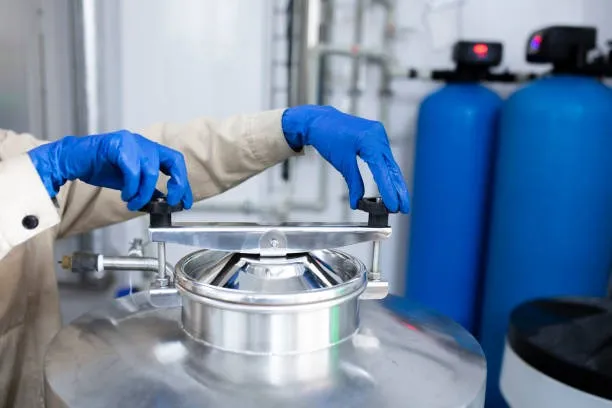
Boiler Tune-Up in Lancaster City, PA
Keeping your boiler running safely and efficiently is essential in Lancaster City homes, where cold Pennsylvania winters and many older, hydronic-heating houses make reliable heat a priority. A professional boiler tune-up targets performance, safety, and longevity—catching small issues before they cause breakdowns and optimizing combustion and controls so your system uses less fuel while delivering steady warmth.
Why a boiler tune-up matters in Lancaster City
Lancaster’s climate and housing stock create specific needs:
- Cold winters increase run time and stress on boilers, making preventive care more important.
- Older homes and original boiler installations are common in Lancaster City; aged components and chimneys can reduce efficiency and raise safety risks.
- Local water chemistry can contribute to scale and corrosion in hydronic systems, affecting heat transfer and part life.
A thorough tune-up reduces the chance of mid-winter failures, lowers operating costs, improves safety, and helps your boiler reach its expected service life.
Common boiler problems in Lancaster City homes
Homeowners who schedule tune-ups often report issues that technicians commonly find:
- Yellow or sooty flames and poor combustion from dirty burners or incorrect fuel-air mix
- Low or erratic water pressure in closed-loop hydronic systems
- Slow heat recovery due to scale buildup on heat exchangers
- Pilot or ignition failures, weak burners, or frequent cycling
- Leaks, corroded fittings, or deteriorated seals in older piping and valves
- Faulty safety devices or controls that can cause unsafe operation
Recognizing these problems early through a tune-up reduces emergency repairs and improves system reliability.
Detailed tune-up checklist
A comprehensive boiler tune-up performed by a qualified technician typically includes the following steps and inspections:
- Visual inspection
- Check boiler, flues, vents, and surrounding area for leaks, corrosion, soot, or obstructions
- Inspect boiler jacket, valves, piping, and condensate lines for wear
- Cleaning
- Remove soot and combustion residues from burners, heat exchanger surfaces, and combustion chamber
- Clean or replace air filters and strainers as needed
- Combustion analysis
- Measure carbon monoxide (CO), oxygen, and combustion efficiency to verify proper fuel-air ratio
- Adjust burner settings to achieve optimal combustion and reduce fuel waste
- Safety checks
- Test pressure relief valve, low-water cutoff, and safety interlocks
- Verify proper venting and chimney draft to prevent dangerous backdrafting
- Inspect expansion tank and system pressure
- Controls and adjustments
- Calibrate thermostat and control set points
- Adjust fuel/air mixture and burner timing
- Check and adjust pump operation, circulator speed, and zone valves
- Minor part replacements
- Replace worn gaskets, seals, pilot assemblies, igniters, or filters if necessary
- Lubricate motors and pumps where applicable
- Performance testing and documentation
- Run the system through cycles to confirm steady operation
- Provide a written report of findings, recommended repairs, and efficiency observations
How a tune-up improves efficiency and reliability
A tune-up restores proper combustion and heat transfer, which directly improves efficiency and comfort:
- Cleaner burners and a tuned fuel-air ratio reduce wasted fuel and lower monthly heating costs.
- Removing scale and soot allows the boiler to transfer heat more effectively, shortening run times.
- Adjusting controls and cycling reduces wear from short-cycling and extends component life.
- Verifying safety devices and venting reduces carbon monoxide risk and prevents unsafe conditions.Overall, a tune-up reduces unexpected breakdowns and helps your system run more predictably during Lancaster’s coldest months.
Recommended frequency
- Annual or seasonal tune-up: For most Lancaster City homes, an annual inspection and tune-up before the heating season is recommended. This is especially important for older boilers, high-use systems, and homes with cast-iron or steel heat exchangers.
- More frequent service: Homes with hard water, significant scale, or frequent cycling may benefit from twice-yearly check-ins or targeted hydronic system maintenance.
Expected duration and cost considerations
- Duration: A standard residential boiler tune-up typically takes about one hour to 90 minutes for a straightforward system. Systems that are older, large, or difficult to access, or those requiring extensive cleaning or diagnostic testing, can take longer.
- Cost considerations (no specific prices provided): The final service cost depends on several factors:
- Age and make of the boiler
- Type of fuel and complexity of the combustion system
- Extent of cleaning required and any parts that need replacement
- Accessibility of the boiler room (tight basements and vintage installations common in Lancaster City can increase labor time)
- Whether additional diagnostic testing (combustion analyzer, flue camera) is required
Technicians typically discuss findings and necessary repairs before proceeding with parts replacement so you can weigh options for repairs versus deferred action.
How to prepare your home for a tune-up
Preparing your boiler area helps the technician complete the work efficiently:
- Clear a 3–4 foot area around the boiler; remove stored items and clutter from basements or utility closets.
- Have recent service records or documentation available if you have them—knowing past repairs speeds diagnosis.
- Note any recent changes: new noises, longer heat-up times, discoloration on radiators, or visible leaks.
- Secure pets and ensure safe access to basements, crawl spaces, or utility rooms for the technician.
- Set your thermostat to a comfortable temperature so the system will run during testing.
Avoid attempting complex DIY repairs on gas or oil-fired boilers; leave adjustments and combustion testing to trained technicians.


Enjoy flexible financing options that make upgrading or repairing your HVAC system easy and budget-friendly.










